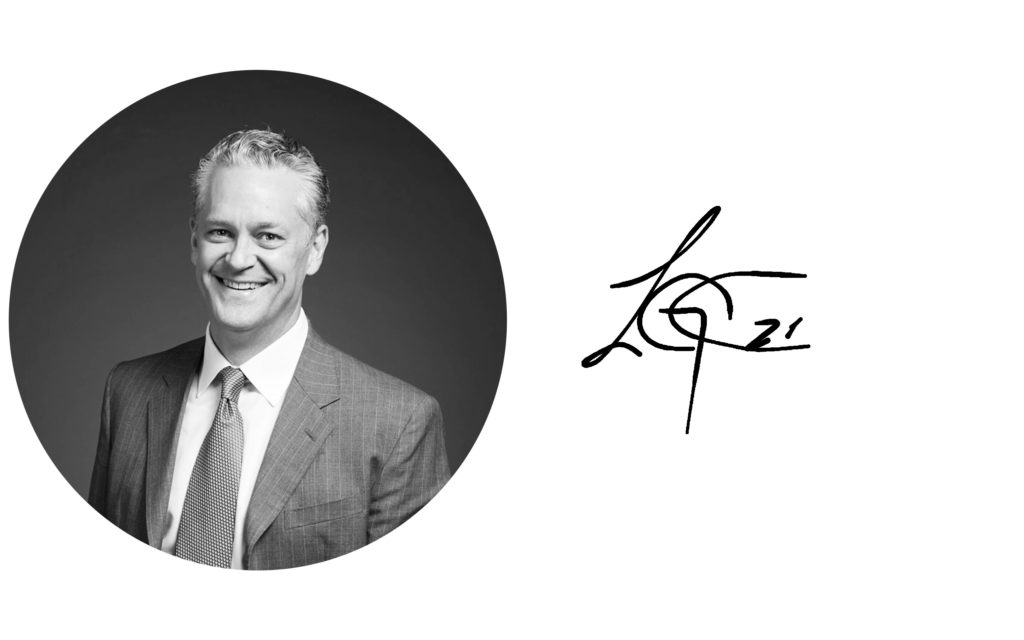
Top 5 Financial Empowerment and Stress Reduction Strategies for Women
I could begin by telling you how women are paid less than men, that women are more likely than men to live in poverty after age 65, or that women have a disproportionate responsibility to take care of their elderly parents or family members, which often removes them for extended periods from the workforce, especially here in Asia, but you likely already know these facts…
Perhaps what you didn’t know is that statistically 80% of women, 8 in 10, “will end up alone and solely responsible for their financial well-being” at some point in their life because women live longer than men, and because of the rise in “grey” divorce. That is an attention grabbing statistic to say the least, yet 49% of women still defer long-term financial decision making to their spouse.
The pandemic has further exacerbated the financial stress on women due to to business closures, job loss, salary cuts, shift cuts, and medical expense demands. Prolonged working-from-home has resulted in a rise in divorce, leaving many women without the economic means to support themselves, and their family.
It is time for you to regain financial control and your sanity, and with these five financial empowerment and stress reduction strategies, I believe you can!
Personal Values
Thoughts and emotions shape our choices. Choices reflect the priority of values. Conflicting values, such as between family vs. self, can get out of balance, especially for women, when the nurturing instinct and providing for others outweighs the need to take care of oneself. By taking care of yourself financially, it will empower you to be better able to take care of others, thereby aligning your values. A financial coach can help you to consider how to best align your values, on your terms, and provide you with the financial tools you need to empower your future.
Equal Participation
In order to feel more financially secure, avoid future surprises (for example from the 3-Ds: death, disability & divorce), and feel more secure in your ability to leave a bad relationship, it is important to have equal participation in long-term financial decisions with your spouse. With equal participation, it will empower you to learn and grow your financial knowledge and understanding, and provide you with visibility into the levels of household debt, savings, investments, and retirement readiness. Developing healthy communication skills around money with your spouse matters, especially if you differ greatly in your money mindsets. Focus on being open, honest, transparent, patient and intentional.

Mindset, Attitude & Discipline (“MAD”)
It’s time to get MAD and empower yourself with a growth mindset, positive attitude and with daily financial discipline. A growth mindset will empower you to learn, grow and achieve, and encourages you to keep trying and learning from your mistakes. A positive attitude will carry your learning and personal growth to new heights. Your focus on daily financial discipline will mean you spend less and save more, as part of your personal financial plan (see below).
Your Personal Financial Plan
Creating your very own personal financial plan may seem outrageous or even impossible, in fact it is very achievable and quite straight forward. There are five primary stages to a financial plan:
a. Create a Budget.
b. Get out of debt.
c. Build a Personal Emergency Fund.
d. Save for short, medium and long-term goals.
e. Invest
a. Create a Budget. Budget – yes, the “B” word… If you want to be in control of your money and finances, you need a budget. A budget is a powerful and positive tool because you learn how to spend on things that really matter to you, rather than wasting money on things that don’t. Build fun into your budget and watch your savings grow!
Develop a household budget that all spenders in the home are comfortable with, agree on and will stick to. To prepare a budget, detail all sources of income and for two months document ALL spending – even if you both work and have your own money – because knowing the total household spend is a first step to reducing stress at home. Make it a fun challenge, not a painful chore, and allow each other to have a few indulgences, if you can afford them.
b. Get out of debt. That sums it up – get out of debt. Even if you have very little in terms of savings, get out of debt first so that you can begin to save more quickly. Consumer debt is bad debt. Credit cards are very handy, but if misused and not paid off in full each month, you create bad debt with a high cost. A mortgage is good debt because it is either providing you with a home or an investment. If you have many debts, pay the smallest amounts and highest interest related debt first. Paying off the smallest debts first provides you with momentum to your plan. Paying off the most expensive debts helps you cut your interest costs. If you receive a bonus, use it to pay off your debt first.
c. Build a Personal Emergency Fund: Prepare for the unexpected – accidents, sickness, death, divorce, job loss. It’s critical to be prepared. If you’re working, have a goal to save a minimum of 3 – 6 months of salary in your emergency fund (in its own separate savings account – not invested in the stock market (too risky for an emergency fund) or real estate (not liquid enough)). Automate your savings to pay your emergency fund savings account first. If you’re not working, and are dependent upon your spouse, find ways to put money away into a segregated account for your personal emergency use. Could you take on a part-time or full-time job, or start a home-based business, to generate income? Protect yourself and prepare for the unexpected. Please do not touch this money unless it is truly a personal emergency. Work with your spouse to create a separate emergency fund for your family.
d. Save for short, medium and long-term goals: Once you’ve paid off your debt and built your personal emergency fund, it’s time to save for other things that matter to you in your life. You save to ultimately pay for your planned purchases with cash so you do not get back into debt. You may use your credit card to transact certain items – such as a vacation, but only doing so knowing you’ve planned and saved for the vacation and can immediately pay off the credit card with the cash you’ve saved. Plan to save separately for all medium and large purchases that you want to make in the next year and beyond. Such items might include your wedding, children, a home purchase deposit, your children’s education, post-Covid travel, but ultimately, you must prioritize and save for retirement.
e. Invest. Saving for retirement means investing for retirement. Put your money to work for you for the long-term to give yourself the best possible chance of having enough savings in retirement. Learn how to better invest in stocks, bonds, ETFs, and real estate. The compounding effect of reinvesting all dividends, interest and property income over the long-term cannot be overstated – it will significantly amplify your savings for retirement. A financial coach and/or financial advisor can help you get started if you are unsure (likewise for guiding you with your personal financial plan).

Income and Expenses
There are two ways to increase your ability to pay off your debt and increase your savings & investments – increase your income and cut your expenses, ideally do both.
As noted at the top of this article, the wage gap is real. Women are known to self-advocate less at work than men and not ask for the pay they deserve. Know your value at work. Know your contribution. If you are not being compensated sufficiently at work discuss it with your employer but be prepared to support your request with an account of your added value and the positive contributions you have made to the company. Perhaps in advance of the meeting, check online and/or discuss with a head-hunter the pay range for your years of experience and position. If this strategy does or does not work, can you also consider generating an extra source of income from a home business?
As part of your financial plan, you will want to cut some expenses, so make sure they are material and consistently applied. So much of how we choose to spend is based upon our behaviour and psychology. In many respects it’s better to go “cold turkey” than trying to cut back here and there a little bit, because in the end you’ll likely just go back to your old choice habits. If you’re spending too much on fancy cheeses, wine or meals out, talk to your spouse (if you have one) and decide what you can do without and simply stop buying it. Most of us are not traveling during Covid, which is a massive cost saving, consider you may not need to travel as much post-Covid, plan for it and save. As well, if you own a home overseas that you do not rent out and do not use more than once or twice a year (or at all during Covid), and you plan on living in Hong Kong longer-term, is it worth paying the mortgage and related expenses? Better to think of your financial future first than maintaining such emotional attachments if they are not serving you well financially.
A few final questions to consider, whether you are working or not
- Do you know about and have access to all of your spouse’s savings and investment accounts? Even if you live happily ever after, prepare for the unexpected.
- Are you entitled to a portion of your spouse’s retirement benefits if you and your husband divorce?
- Are you aware of the retirement plan rules if either you or your spouse dies? What if your spouse is disabled – what is covered – especially if you are not working?
- Do you have the necessary insurance (and savings) in place if the working spouse were to become disabled or dies? If you are not working, would you be able to cover the mortgage/rent, school fees, travel, etc. to maintain your family’s lifestyle?
By implementing the above stress reducing strategies and empowering yourself to implement a solid financial plan for a more fulfilled life, you will be able to chart your progress over time and feel a great sense of pride and relief that you are now in control of your money. So, embrace your MAD success strategy and take back control in your life. You can do this!
About the author: Lachlan Campbell’s purpose, his “Why”, is to help people live the life they want, their way. He founded MAD Success Limited, because he believes everyone should live a happy, healthy, wealthy, more fulfilled life. As experts and thought leaders in Wellness, MAD Success offers workshops, seminars, courses and coaching for individuals and corporates. Lachlan is available for local and international professional coaching, consulting, and speaking engagements on such life fulfilling topics as Creating a Life or Financial Plan, Career, Leadership, Entrepreneurship, and Wellness (holistically combining Mental, Physical & Financial Well-Being). Email: GetUnstuck@MADSuccess.com
Interested in more financial tips from Lachlan? Check out 7 money management tips for entrepreneurs starting a business in Hong Kong.
Thank you for reading this article from WELL, Magazine Asia. #LifeUnfiltered.
Connect with us on social for daily news, competitions, and more.






